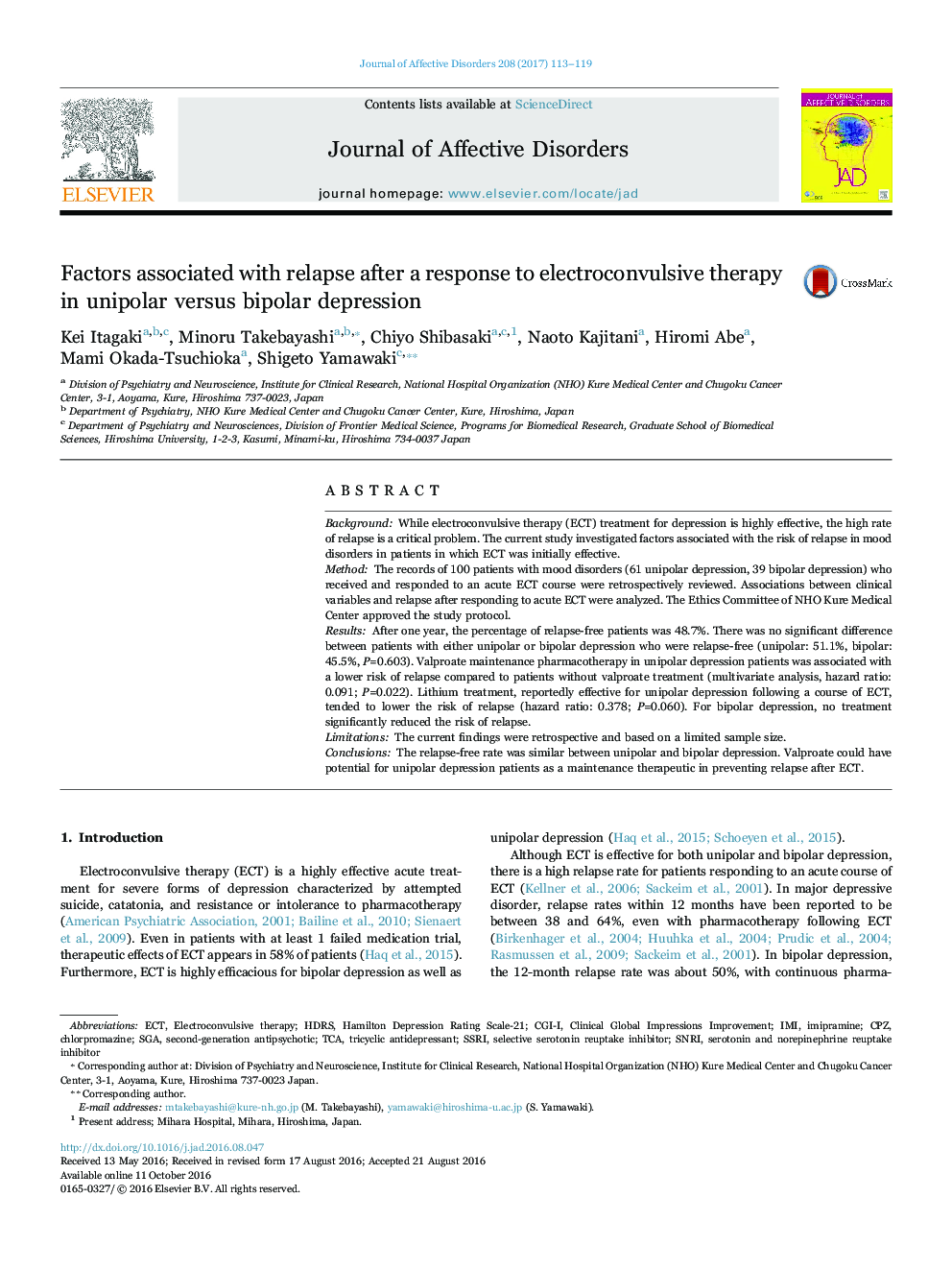| Article ID | Journal | Published Year | Pages | File Type |
|---|---|---|---|---|
| 5722066 | Journal of Affective Disorders | 2017 | 7 Pages |
â¢Depression recurs in 50% of patients one year after electroconvulsive therapy.â¢There is no difference in relapse rate between unipolar and bipolar depression.â¢Valproate could be used for preventing relapse of unipolar depression.
BackgroundWhile electroconvulsive therapy (ECT) treatment for depression is highly effective, the high rate of relapse is a critical problem. The current study investigated factors associated with the risk of relapse in mood disorders in patients in which ECT was initially effective.MethodThe records of 100 patients with mood disorders (61 unipolar depression, 39 bipolar depression) who received and responded to an acute ECT course were retrospectively reviewed. Associations between clinical variables and relapse after responding to acute ECT were analyzed. The Ethics Committee of NHO Kure Medical Center approved the study protocol.ResultsAfter one year, the percentage of relapse-free patients was 48.7%. There was no significant difference between patients with either unipolar or bipolar depression who were relapse-free (unipolar: 51.1%, bipolar: 45.5%, P=0.603). Valproate maintenance pharmacotherapy in unipolar depression patients was associated with a lower risk of relapse compared to patients without valproate treatment (multivariate analysis, hazard ratio: 0.091; P=0.022). Lithium treatment, reportedly effective for unipolar depression following a course of ECT, tended to lower the risk of relapse (hazard ratio: 0.378; P=0.060). For bipolar depression, no treatment significantly reduced the risk of relapse.LimitationsThe current findings were retrospective and based on a limited sample size.ConclusionsThe relapse-free rate was similar between unipolar and bipolar depression. Valproate could have potential for unipolar depression patients as a maintenance therapeutic in preventing relapse after ECT.
